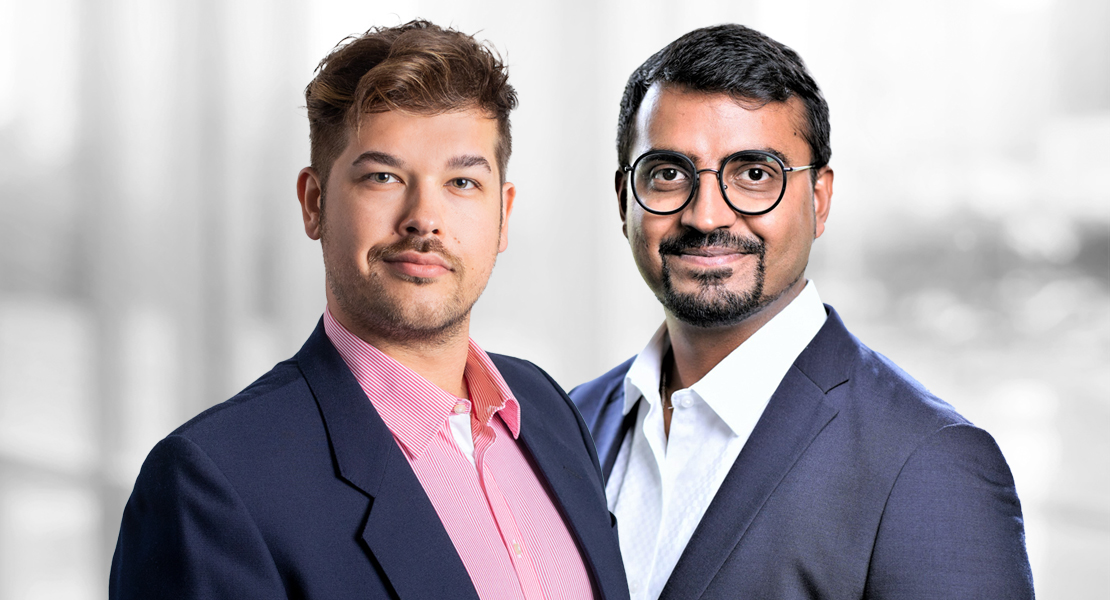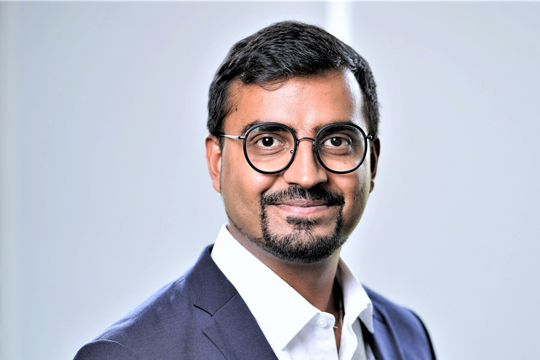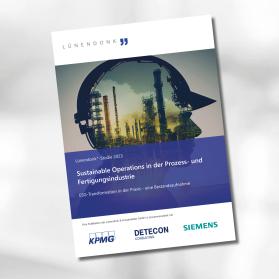If organizations want their operations to be truly sustainable, they need to develop a comprehensive strategy to minimize their negative environmental, economic, and social impacts. Sustainability has ceased to be a temporary diversion and turned into an essential building block that must be fully integrated throughout the organization in its entirety. Parallel to the ongoing advance of digitalization, ICT is rapidly broadening its scope and enables more holistic and data-driven strategies.
Our experts, Dr. Shivam Gupta and Christoph Zorn, illustrate the rewards that arise from the integration of sustainability and digitalization and how they can be leveraged to make organizations more efficient and cost effective; moreover, the benefits, far from being limited to environmental issues, encompass economic and governance aspects. Digitainability supports better decision-making by providing data and facilitates monitoring of the economic, environmental, and governance factors so that we can promptly address and minimize potential adverse effects.
Christoph, what particular significance does sustainability have for the ICT sector?
Christoph: The ICT sector has a major role to play in our economy and our globally connected world. Even today, it produces around 3 to 5 per cent of global CO2 emissions; in comparison, buildings and concrete production are responsible for about 6 to 8 per cent. In other words, ICT technologies will join the construction sector as a major polluter in the future because the digitalization trend continues unabated. We will be well-advised to consider the significant environmental and social impact of the acceleration of the ICT sector and its operations without losing a moment as there is a huge added-value chain behind the scenes, ranging from the straightforward consumption of resources and energy to the life cycle management of the related products (such as a radio tower or storage unit) to the installed software and even to the people who work on the development of each of these links. Optimizing these operations by reducing the negative impact along the full length of the chain is a critical task that must be tackled.
Digitainability is linking Digitization and Sustainability. What makes this so special?
Shivam: The term Digitainability merges the concepts of sustainability and digitalization to describe the mindful use of technology for sustainable development.The concept was developed from my research in 2020 at University of Bonn from the work on data-driven approaches and KPIs to measure the impact of digitalization on sustainability. My extensive research revealed that neither technology nor sustainability can be considered in isolation from each other. We cannot ignore digitalization when seeking solutions to sustainability issues in the digital era, and our actions to achieve sustainability require the use of digitalization in a clear contextual situation. During the past several decades, industry has focused almost exclusively on economic factors, and today we are facing the ecological and social consequences of this narrow perspective. Since sustainability is not always tangible, digitalization can help us to gather timely data that can serve the definition of clear steps of action for moving away from philosophical theorizing about sustainability and putting it into actual practice.
Detecon is the first organization to introduce the concept of Digitainability and to integrate our rich expertise in digitalization and our efforts to achieve sustainability into the sustainability services we offer. In the meantime, Digitainability has become well established in multiple industries and is an element of significant strategic discussions at the UN’s International Telecommunication Union (ITU) and others. The concept of Digitainability represents an opportunity to create an Industry 5.0 that achieves economically efficient digitalization on the one hand and environmentally and socially sensitive action for holistic sustainability on the other. Sustainability is an outcome; Digitainability is the action-oriented approach exploiting digitalization for the realization of sustainability.
Christoph: The key element of Digitainability is data — uncovering the bits and pieces we want to improve in the future. The toughest challenges are discovering what data we need, where they can be found in the overwhelming masses of available information, and how they can ultimately be combined to promote the goal of generating a more sustainable impact. Simultaneously, however, we must redesign from scratch our procedures for the creation of new products and solutions and integrate Digitainability into them from the very beginning.
What prevented companies from being sustainable in the past?
Christoph: A major hurdle is the lack of education concerning the actions that really make a difference in this respect. Sustainability is a scientific discipline all its own and requires a genuine understanding of the whys, whats, and hows. A simple mindset of “just do it” is too short-sighted (as is, by the way, greenwashing). Striving for sustainability means analyzing one’s own actions, one’s own organizational structure, and its input and output flows, then evaluating how they can all be rethought to create value instead of negative impact. Current regulations such as the EU Taxonomy and the ESG debate are evidence of the widening acknowledgement of the value of this method. As we continue to acquire general knowledge about interdependencies and impact, I am convinced that the seemingly never-ending discussion about sustainability as no more than a cost and investment liability will be put to rest by a shift in attitudes. Wanting to promote this shift, I unceasingly advocate thinking in terms of ecosystems — none of us should think of ourselves and our actions as being isolated. We are all interconnected, not separated from one another. Digitainability builds on this consciousness by generating data, of excellent quality from transparent sources, that culminate in comprehensive actions across all three dimensions of sustainability — data are indeed the new oil.
Shivam: Awareness is crucial when it is a question of understanding the rewards of sustainability, technology, and data that benefit organizations. At the moment, everyone is focused on reporting that draws on data without clearly describing the context and how they can support the organization’s efforts to realize sustainability. Reporting is a process oriented to the outside world, but I believe organizations must reflect on the data in terms of the internal benefits obtained from sustainability. Data must be presented in context and linked in such a way that they lead to meaningful conclusions. Technologies like the IoT, the cloud, and 5G will promote this hyperconnectivity. Another important aspect is the perception of sustainability as an investment; in reality, sustainability activities result in gains in efficiency, ensure the long-term viability of an organization’s business, and decrease OPEX in the short term. In effect, sustainability is precisely what we need to streamline our processes and achieve our goals. This is the point where the concept of Digitainability bundles so many actions.
Shivam, how can the Detecon “ICT Enablement Potential Framework” support the processing of data?
Shivam: Our innovative framework offers full-range support for organizations that are serious about decreasing their climate impact and taking steps toward sustainability. We take a holistic approach, considering both the direct and indirect impact of their ICT infrastructure and services, to provide a structure solution incorporating every single essential aspect. Utilizing this framework, organizations can confidently make informed decisions leading to sustainable change and reduced carbon emissions. It is imperative to realize that carbon is not only released during environmental processes; various indirect services within an organization also contribute, and the implementation of our framework is essential for the achievement of economic, environmental, and social sustainability because it balances these three pillars and aids its users in their quest for genuine sustainability. The framework provides valuable data that render economic decision-making effortless, and it also monitors environmental impacts so that negative effects can be mitigated in good time.
What is the next driver for sustainability, especially in the ICT sector?
Christoph: The future of sustainable organizations is definitely digital. One megatrend that will strongly affect our work in the future is the digital twin. In its optimal form, it mirrors an entire company from input to output and beyond to outcome, offering us a much-needed glass house effect that will allow a predictive analysis of all flows that can be improved.
Shivam: The integration of data spaces, AI, IoT, and digital twin technologies is poised to revolutionize operations management and to elevate sustainability to unprecedent heights. Each digital twin represents a unique opportunity to optimize specific goals, enabling organizations to identify easily the areas where improvement is possible and to achieve remarkable gains in efficiency. By adopting digital twins, organizations can simultaneously address multiple aspects of their operations. This revolutionary development hinges on hyperconnectivity and the forging of seamless connections among various sensors, business processes, and systems. Moreover, hardware advancements stress greater environmental friendliness, significantly lessening operation costs and heightening energy efficiency.
Organizations that confidently embrace the data-driven revolution will unlock the door to optimized use of resources, reduced emissions, and drive profound positive change. The time to seize this opportunity is now; we are standing on the cusp of a new era when sustainability and digital operational excellence will go hand in hand. Digitainability is the future.
What role does Detecon play in this development?
Christoph: Detecon faces the same challenges as our clients — we must also become holistically sustainable. As mentioned previously, education about sustainability is a key factor in achieving this goal. Every colleague must understand the concept and how to integrate it into their day-to-day work so that each and every person can play his or her essential role in the big picture that is Detecon’s sustainability impact. We have just begun the learning journey that lies ahead of us, but I am confident of success because of the resources in our company’s toolbox: our employees and colleagues. As it is our business to exploit our top management support, strategic measures, targets, and cutting-edge technology (such as 5G, artificial intelligence, or the Internet of Things) in advising and encouraging the industry to increase their data-driven sustainability, I am sure we will improve our own operations as well as those of our clients.
Shivam: Sustainability is a multifaceted concept that must take into account holistic elements based on the industry and domain of every project. Our Digitainability offering can support clients in making informed decisions during the sustainability journey — not only in their reporting, but in the transformation of the operations for future readiness. We at Detecon recognize the importance of these goals and actively promote them with our innovative approaches and digitalization expertise. Our initiatives are tailored to the unique characteristics of each industry and domain, and they produce valuable insights. If we are to achieve sustainability, we must be bold and confident, and we must focus on the measurable impact of our actions. By utilizing the data obtained through Digitainability, we empower organizations to flourish by promoting holistic sustainability in good time.
Thank you, Christoph and Shivam, for these interesting insights from the field of Digitainability.









